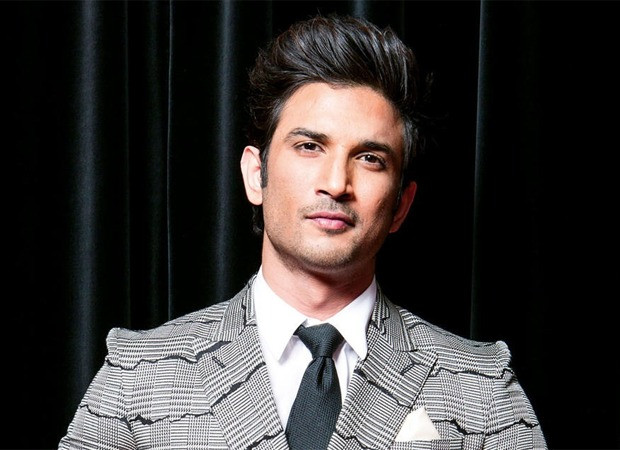
Paparazzi, convincing acting and Kardashian-like portrayals of celebrity lives can lead one to believe those in the showbiz have it easy; easy money, easy fame and an easy way out from all of their problems, which are also often believed to be self-induced.
But certain events are sufficient to burst the bubbles that many of us choose to live in as we engage in our favourite celebrities’ lives from behind a screen. While we don’t exactly know what they may be going through, when met with an actor’s demise, we realise they didn’t have it as easy as we thought.
Such was the case with Bollywood’s budding star Sushant Singh Rajput’s untimely death – which was ruled a suicide. Today marks precisely one year since Rajput was found dead in his Bandra Apartments in Mumbai. While his fans in India and Pakistan united to remember him, the aftermath of his death was something no one expected.
Soon after the actor's funeral, his father KK Singh filed an FIR accusing Sushant's girlfriend, actor Rhea Chakraborty of abetting suicide. He also accused her of money laundering, as reported by the Hindustan Times. While the exact cause of Rajput’s demise is still unknown, the debate that reared its head was how, a man who made it in Bollywood entirely on his own without any connections or internal help, could have given up on life while his career peaked?
People close to him alleged that his films — Drive and Dil Bechara — releasing directly on OTT platforms affected him. While some cited discrimination towards him as an ‘outsider’ to be another factor leading to his passing.
Bollywood’s ‘inequality’
Is it fair to say that Rajput’s death unveiled the inequality in Bollywood? Actor Adhyayan Suman, who has faced this discrimination, despite being the son of Shekhar Suman, thinks so. “It was a good thing that so much came out. There are so many inequalities in Bollywood. Sushant’s death brought out so many things that are prevalent in our industry,” the Hindustan Times quoted Suman as saying.
But he went on to ask, “How much change has it brought [though]? Have deserving people started getting work? Has it become easier for them?”
The 33-year-old added that irrespective of the backlash that several bigwigs received upon Rajput’s passing, many still refuse to entertain new or lesser known faces. “I don’t think directors have started taking calls of nobodies. I don’t want to name a filmmaker, he came to me during the pandemic last year, and said ‘I love you as an artist, there is no chance I am not going to give you work’. It’s been then and now, he is not answering my calls. It’s unfortunate. I am not sure anything has changed,” added the Heartless actor.
Reinstating how a showbiz is after all a “business”, actor Samir Soni argued that Bollywood does not run on charities, and like every business, the investor has to think about profits.
“If he [filmmaker] can do that with his own son, or with a guy from a small town in Bihar, it is a business. A lot of people say ‘merit counts’. Then people like Naseeruddin Shah and late Om Puri should have been the highest paid actors in the country. Market decides that,” the Fabulous Lives of Bollywood Wives actor explained.
Soni feels that conversation on such topics strikes an emotional chord with people, which is why they fail to look at things logistically. “If I was to make a film and had enough money, I wouldn’t play the central character, I know people will crowd theatres to watch someone more saleable. If a film doesn’t work, the public won’t say ‘even though he lost 20 crores, he gave a new guy a chance’, they will just say the film didn’t work,” he added.
However, he called Rajput a “success story” for managing to deliver hits and working with different directors despite being an ‘outsider’.
Actors get a voice
Rajputs demise not only brought important discussions about the film industry to the fore but also gave many actors — outsiders — the courage and power to speak up. A rank outsider, Amol Parashar, claimed several friends and well-wishers reached out to him after such conversations started.
“There were conversations about the inner lives of young actors, the pressures they live with on a day to day basis and the demons they fight away from the public eye. In a few days though, the conversations became convoluted, and instead of sympathising with his colleagues and friends who were dealing with the loss, some sections of the media turned it into a headless witch hunt,” rued the 34-year-old.
The Dolly Kitty Aur Woh Chamakte Sitare actor hopes the conversations about young people’s internal struggles can be approached with more empathy, “especially in an industry that keeps you on your toes all the time”.
Have something to add

1722586547-0/Untitled-design-(73)1722586547-0-165x106.webp)


1732326457-0/prime-(1)1732326457-0-165x106.webp)
1732308855-0/17-Lede-(Image)1732308855-0-270x192.webp)











COMMENTS
Comments are moderated and generally will be posted if they are on-topic and not abusive.
For more information, please see our Comments FAQ